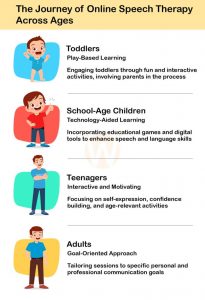Why Do Some People Take Things So Personally? | Are You Getting Hurt Very Often?
By Prapoorna M
Last Updated: November 27, 2021
We come across some people who feel that others are “mistreating” them when, in fact they are not. If they were not invited to a party, they feel they were not wanted; if someone forgets to call them, they feel the other person does not care; if someone does not talk to them, they feel that the person is angry with them. These people assume that other people’s actions/words revolve around them. There are two reasons why such people think like that.
Firstly, all human beings construct reality from their own subjective perspectives; they perceive and understand things through their own systems of values and beliefs. They feel that their personal beliefs and values are objective truths for themselves and everybody else. Hence, if they desire something, they want others also to desire it; if they think something is important, they assume it must be really important for others also.

Secondly, many human beings seek perfection and cannot accept imperfections of existence. They become preoccupied with and experience anxiety about the possibility of negative things happening. Further, such people are also highly ego-centered and tend to construct hypotheses (explanations) about reality based on their anxieties. For instance, if a friend acts troubled or preoccupied, such a person will tend to take it personally and think the behavior is aimed at him, even if there is no particular reason to draw such a conclusion.
A combination of these makes people personalize their experiences. Personalization is a tendency to assume personal responsibility for events over which people have little or no control. This pattern of the human mind makes people see the world happening not just around them, but to them and because of them. Personalization is a form of self-blame wherein the emotional response to an event is turned inward so that people become the primary mover.
Human beings tend to personalise because their minds are extremely good at finding causality in the world — if A, then B. Causality helps understand the world, plan for the future, reduce randomness and gain control over a chaotic universe by shaping events rather than merely reacting to them. In this process, they view themselves as the centre of their world and that they have a greater role in that causality. As a result, personalisation becomes a function of their ego. Such people cannot take things personally because they experience everything personally.
HOW TO STOP TAKING THINGS PERSONALLY?
Taking things personally is a sign of low self-esteem. It may make us feel
inadequate, ashamed, or even angry at ourselves or other persons. However, the good news is that we can stop taking things personally. This does not come naturally; it is a skill that has to be learned and practiced.
We have little control over how others view us and relate to us. We have more control over how we view ourselves and the situation, and how we respond to it. If we take time to look clearly at things, we can gain some distance from the situation rather than to be so personally merged with it that we react quickly and mindlessly.
Scrutinize your thoughts
When we take things personally, we perceive events as happening to us. That usually feels like a vague, generalized experience, but it’s actually comprised of very specific thoughts. So the best place to start is to look at those thoughts. Write down the thoughts and examine to what extent they are true. Then look for evidence for the thoughts and reframe them in the light of the evidence. Such scrutinization of thoughts reduces the chances of personalization.

Evaluate your influence
A great deal of personalization depends on causality. The belief that we have a larger role in influencing events than we actually do. Evaluate whether you are responsible for the thoughts and why you think you are responsible. If you realize that you are not responsible, you understand that causality exists in someone else, or in the situation.
Shift perspectives
We can only personalize when we’re locked into our own experience. When we take a moment to empathize with the other party — by imagining what a situation is like from their point of view — it becomes much harder to exclusively view life through our highly personalized lens. When we do empathize with another person, we tend not to personalize as much, because we’re not locked into our narrowly self-oriented point of view.
Shifting perspectives also involves asking yourself what else the comment or behaviour might mean. For example, if someone doesn’t smile or say hello, it could mean they might be shy, have something on their mind, or they didn’t see you. If someone is critical, they may genuinely want to help you and it might not be intended as a personal attack.
Talk about it
When we take things personally, we’re often forming implicit assumptions in our minds. We just can’t know if those assumptions are true — unless we talk about it with the other person. Testing these assumptions can reduce the associated anxiety. The benefit of opening up to other people is actually empathy in action. If we find it difficult and challenging to talk with friends or family members, we should remember that there is professional help available and it’s okay to seek it. Some things ought to be taken personally When we talk about not taking things personally, we do not mean not taking anything personally. The truth is, some things are personal and we do have a role to play in events. The conditions that decide what things should be taken personally include the
- The extent of influence we have over the person/event/decision/relation
- The extent to which we can focus on the specifics involved (time, energy,
- emotional control, conversation) to complete the task
- The extent to which we can ensure the person/event/decision/relationship
- unfolds as productively and peacefully as possible
- The extent to which we can assume responsibility for our action
This is how we can use personalization to make our lives happier, richer, and more productive — not by learning how to stop taking all things personally, but by learning to personalize the right things and then translating them into action. It does require effort, persistence, and time to stop taking things personally, especially when it’s something you’re used to doing. However, it’s well worth the effort. You will find that your self-esteem and overall quality of life will improve when you stop taking things personally. You are worth it and you can do it.
Book your Free Consultation Today
Parent/Caregiver Info:
Client’s Details:
* Error Message









